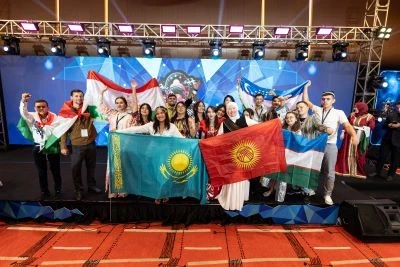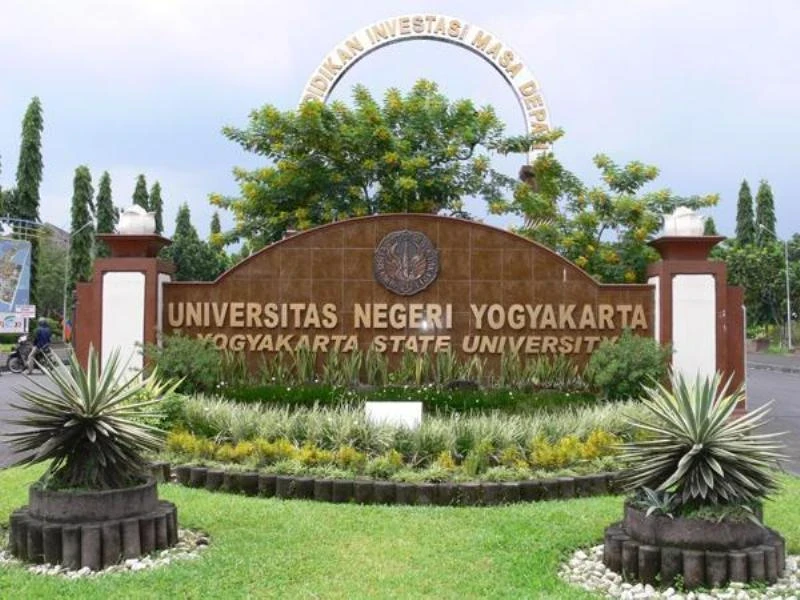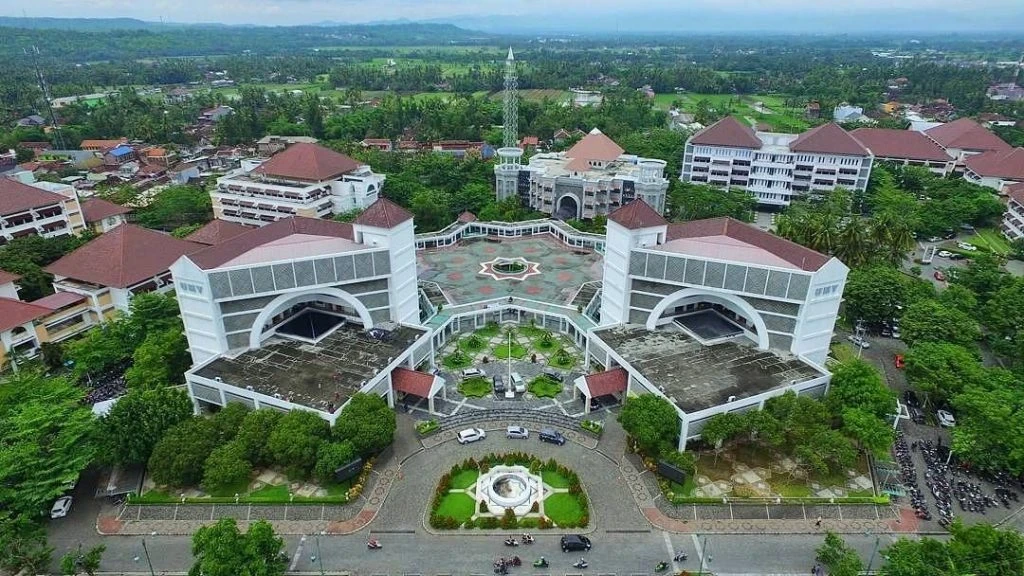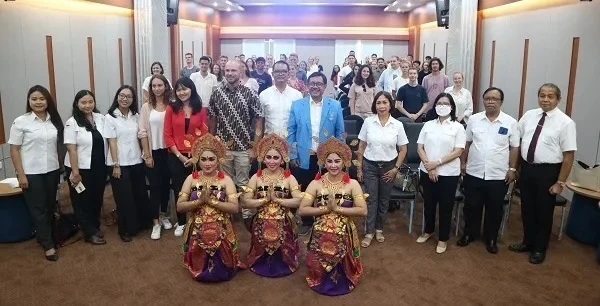The idea of pursuing education abroad has always been popular. In today’s world, it has become an essential step in the lives of young people, significantly broadening their horizons.
Depending on individual goals, studying at a foreign university can range from completing a short course on a specific topic to obtaining a full degree by completing undergraduate, master’s, or doctoral programs, as well as conducting research and earning advanced academic qualifications in postgraduate studies.

For studying in Indonesia at the undergraduate, master’s, or doctoral levels, proficiency in English is typically required, along with a TOEFL or IELTS certificate as proof. Some universities offer programs exclusively in the Indonesian language, so completing language courses beforehand may be necessary. Applications are usually accepted at the end or beginning of each calendar year.
Darmasiswa RI Program
The Indonesian Ministry of Education, Culture, Research, and Technology (Kemendikbudristek) aims to strengthen friendly relations with partner countries, one of the initiatives being the Darmasiswa RI scholarship program, a form of “soft diplomacy.” This program offers international students the opportunity to study in Indonesia while immersing themselves in the country’s traditions and way of life.
For more details, visit the official website: darmasiswa.kemdikbud.go.id.

This is a non-degree scholarship program offered by the Indonesian government through the Ministry of Education and Culture to foreign nationals from countries with diplomatic relations with Indonesia. The program allows international students to study arts, languages, and other subjects while living and studying at various higher education institutions across Indonesia. The age limit for applicants is 32 years.
In the 2024/25 academic year alone, 236 students from 67 countries arrived under the Darmasiswa program with student visas and began their studies at 69 universities across Indonesia. Of these, 31 are studying Indonesian arts and culture, while the remaining 205 focus on the Indonesian language. The largest number of participants came from Vietnam and Japan, with 19 students each, followed by Madagascar (15), Thailand (14), and Uzbekistan (12). A few participants also came from Kazakhstan and Kyrgyzstan.
The program began in 1974 as part of an initiative by the Association of Southeast Asian Nations (ASEAN), initially accepting students only from Southeast Asian countries. However, in 1976, the program expanded to welcome students from other countries, including Australia, Canada, France, Germany, Hungary, Japan, Mexico, the Netherlands, Norway, Poland, Sweden, and the United States. In the early 1990s, the program was further extended and now includes students from all countries with diplomatic ties to Indonesia. To date, more than 9,000 students from 136 countries have participated in the program.
KNB Program
The Darmasiswa RI program is not the only opportunity for studying in Indonesia.
For example, in the 2024/25 academic year, Yogyakarta State University (UNY) welcomed 103 international students from 20 countries, including 53 from China, 7 from Thailand, 6 from the United States, and 5 each from Tajikistan, Pakistan, and Madagascar. Students also arrived from Yemen, India, Egypt, The Gambia, Japan, Kazakhstan, and Kyrgyzstan.
These students are enrolled in various programs, such as the UNY Distinguished International Student Scholarship (UNY-DISS) and the Developing Countries Partnership Program (KNB), which support undergraduate, master’s, and doctoral studies.

To participate in the KNB Program for undergraduate, master’s, or doctoral studies, applicants must submit their applications on the official website: knb.kemdikbud.go.id. The program provides grants covering airfare, accommodation, tuition fees, and health insurance.
Tentative Timeline for KNB Applicants
• Registration Deadline: Mid-February
• Administrative Selection: February–March
• Academic Selection, Interviews, and Psychological Tests: March–May
• Results Announcement: June
• Visa Processing: July–August
• Arrival in Indonesia: August
• BIPA Program Implementation: September (Bahasa Indonesia for Foreigners Program)
• Start of Lectures: Mid-August or per the academic calendar of the host university
List of Universities Hosting KNB Students in 2024/25
• IPB University
• Institut Teknologi Bandung
• Institut Teknologi Sepuluh Nopember (Surabaya)
• Politeknik Elektronika Negeri Surabaya
• Universitas Airlangga (Surabaya)
• Universitas Atma Jaya Yogyakarta
• Universitas Diponegoro
• Universitas Gadjah Mada (Yogyakarta)
• Universitas Hasanuddin (Makassar, Sulawesi)
• Universitas Indonesia (Depok, West Java)
• Universitas Katolik Parahyangan (Bandung)
• Universitas Muhammadiyah Malang
• Universitas Muhammadiyah Surakarta
• Universitas Negeri Malang
• Universitas Negeri Yogyakarta
• Universitas Padjadjaran (West Java)
• Universitas Pendidikan Indonesia (Bandung, West Java)
• Universitas Sebelas Maret (Surakarta)
• Universitas Telkom (Surakarta)
• Universitas Islam Indonesia
• Universitas Brawijaya (Malang)
• Universitas Negeri Semarang
• Universitas Negeri Surabaya
• Universitas Syiah Kuala
• Universitas Dian Nuswantoro (Semarang, Central Java)
• Universitas Sanata Dharma (Yogyakarta)
• Universitas Wijaya Kusuma Surabaya
• Universitas Jenderal Soedirman (Purwokerto, Central Java)
• Universitas Sumatera Utara
• Universitas Negeri Jakarta
• Universitas Lampung
University-Specific Scholarships in Indonesia
Some universities in Indonesia independently provide grants for international students.
For example, Universitas Muhammadiyah Yogyakarta (UMY), one of the top private universities in Indonesia, offers the following:
• Full tuition coverage
• Free dormitory accommodation (for one year)
• Monthly living stipend:
• Undergraduate: IDR 1,500,000
• Master’s: IDR 2,000,000
• Doctoral: IDR 2,250,000
For application deadlines and details, visit their official website: internationaladmissions.umy.ac.id.

Self-Funded Education in Indonesia
If you plan to cover your education expenses independently, you’ll have a wider range of institutions to choose from. Tuition fees at Indonesian universities typically start from $1,000 per year and can go higher depending on the program and institution. You can find a list of universities and their tuition fees on general platforms or directly on the websites of universities offering your desired programs. Some universities have age restrictions of up to 40 years.
On Bali, 67 international students are enrolled in self-funded programs at Warmadewa University, with the medical faculty being one of the most popular choices. Details about available programs can be found on the university’s website: warmadewa.ac.id/prodi.

Udayana University (UNUD), Bali’s largest university, admitted 48 self-funded international students in 2024. UNUD offers a wide range of faculties and programs, which you can explore further on their website: unud.ac.id.
Student Visa in Indonesia
The student visa (E30) in Indonesia is divided into several categories based on the level of education:
• E30A: Primary and secondary education
• E30B: Diploma and undergraduate programs
• E30C: Master’s programs
• E30D: Doctoral programs
• E30E: Education in special economic zones
Indonesian student visas consist of three official documents:
1. Study Permit
2. Entry Visa (VITAS)
3. Temporary Residence Permit (KITAS)
• Entry visas (VITAS) are valid for 3–6 months.
• KITAS is valid for 12 months and must be renewed annually until the completion of the program.
Make sure to coordinate with your chosen university to ensure smooth visa processing and compliance with Indonesian regulations.
Study Permit and Visa Application Process in Indonesia
A study permit is issued by the Directorate General of Higher Education in Indonesia, with assistance from the host university, which provides the necessary supporting documents.
Required Documents for Study Permit Application:
1. Three copies of your passport
2. A copy of the recommendation letter issued by your university
3. A copy of your acceptance letter
4. A completed application form
5. A recommendation letter from the Indonesian Embassy/Consulate in your country of residence
6. A copy of your academic transcripts and records
7. Your resume (CV)
8. Two passport-sized photographs
9. A financial guarantee letter or sponsorship certificate confirming your ability to cover education and living expenses
10. A health certificate
Once your study permit is issued, the Directorate General of Higher Education will forward it to the Directorate General of Immigration in Jakarta for visa processing. A telex will be sent to the Indonesian Embassy in your home country, where you will submit your documents and receive your VITAS (Limited Stay Visa).
Post-Arrival Procedures in Indonesia
After arriving in Indonesia, you must report to the immigration office within 30 days to apply for:
1. KITAS (Temporary Stay Permit)
2. If required, a multi-entry exit permit
Who Covers Visa and KITAS Costs?
The responsibility for visa and KITAS fees depends on the specific study program. Some programs may include these costs in the scholarship or financial aid package, while others may require the student to cover them independently.
Make sure to coordinate closely with your host university for a smooth application process.

You can add one right now!